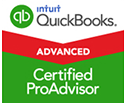The long term goals of your family and business are essential for continuation plans for you and your clients.
While most will have a need for trusts only under special circumstances such as higher wealth individuals, estate planning is something that should be completed for a variety of reasons. Once such reason is business continuation but also having your estate distributed to the ones you care about most. While trust and estate documents fall under the skills of a good attorney there is still much to be said about planning ahead and keeping things simple to the extent possible.
Such planning can include simple things such personal contacts, insurance and location of financial information. The safety of personal property such as electronics and jewelry for example but also family items that have personal value. Yet also not so simple things such as having someone in place to avoid losing the value of your business if it no longer functions. Clients may have voiced concerns of your continuation plans for business and the proverbial “bus” accident and such.
Many a single owner businesses, especially in the trade business, may have the one person who is so vital to the operation that there is not a feasible ongoing business plan and thus no value can be retained. Thus a strategy is important to determining what might happen if planning is available or life insurance products to protect your family.
Based upon accounting expertise, the company can guide you on kind of planning would best suit you. There are simple things to be done and help identify areas for further research. For instance, credit shelter trusts are the most common kind of way to avoid costly mistakes that can be made through neglect. Also creating family partnerships way in advance is a great way to pass down real estate assets while keeping control of the partnership.
Serving As Fiduciaries – Managers For Your Estate Or Trust
Fiduciaries can be any individual or a company that acts for the benefit of another. Executor is a form of fiduciaries. As an executor, the entity responsible would manage and settle your estate as per your wishes. Some estates are settled with a will and some without. However if you do not have a will the assets do not automatically get sent to the state coffers as there is state law which tends to direct it towards your family in a specific order. So for example if you have children by two marriages you might want to consider how this might work and without a “will” probably not according to your wishes.
While some take on responsibility of managing their own trusts, many find a professional trustee more convenient to take care of the administrative duties. Having an accountant handle the ins and outs while also preparing the tax returns can keep costs more effective than hiring separate functions.
The executor should have in-depth knowledge of all financial matters that can arise as they are responsible for the collection and location of the decedent’s assets and paying expenses and making beneficiary distributions. They should also have excellent experience about probate accounting and tax matters.
The services include:
– Work on business continuation plans, transition and valuation
– Managing real estate and other valuable personal property
– Working with probate attorney and the process of making distributions to beneficiaries
– Keeping financial assets safe and identifying liabilities
– Paying bills and filing relevant information
– Probate accounting and tax returns
– Distribution to beneficiaries as per your wishes
The firm has experience in providing these services and working closely with the family and having long term satisfaction. Their integrity and experience will go a long way to providing beneficiaries with efforts that will last generations.
Contact Strictly Accounting today for reliable estate and trust planning.






